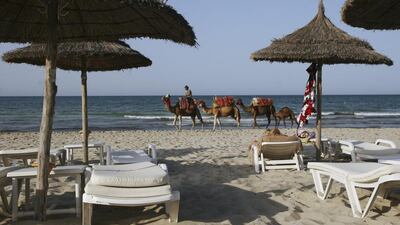The promise of the Arab Spring has not been fulfilled in most of the countries that became caught up in the revolutionary fervour of 2011. But Tunisia, where it all began, was – and still is – the standout case. Power changed hands relatively smoothly after the exit of long-term president Zine El Abidine Ben Ali. After a false start, the country now has a leader in Beji Caid Sebsi who appears to be committed to reform.
But Tunisia still faces great challenges. A revolution born out of protests over economic conditions is yet to improve life for most Tunisians. There is massive youth unemployment, which has contributed to the radicalisation of thousands of who have joined militant groups abroad. Late last year, it was estimated that 3,000 had gone to fight in Syria, making Tunisians the largest contingent of foreign jihadists.
Tunisia desperately needs to find economic solutions. That is obvious from yesterday’s Investment and Entrepreneurship Conference in Tunis. It was attended by members of the Tunisian government from the prime minister down and a high-powered American delegation, led by secretary of commerce Penny Pritzker. Former US secretary of state Madeleine Albright and representatives from Amazon, Boeing, GE and Microsoft were also there.
The US clearly has an interest in a stable, sustainable Tunisia, as do the nearby countries of Europe and the Mena region. But it is up to Tunisians to identify and seize the opportunities. As Jerry Sorkin pointed out in The National this week, tourism can be a part of the recovery if the infrastructure is updated and there is enough investment of innovative thinking and capital. The same will be true of any other ideas that emerge from that investment conference. There are many young and well-educated Tunisians, and there are undoubtedly entrepreneurial opportunities. But where is the market? Europe is having its own problems, so Tunisia may be better off looking south, to Sub-Saharan Africa, where a large group of countries share its colonial past and the French language.

